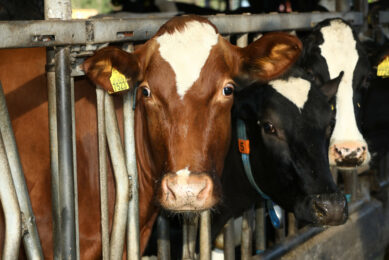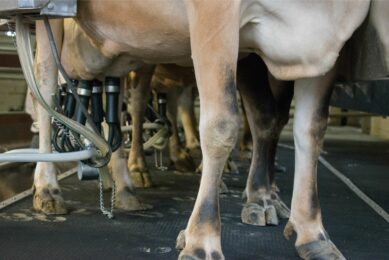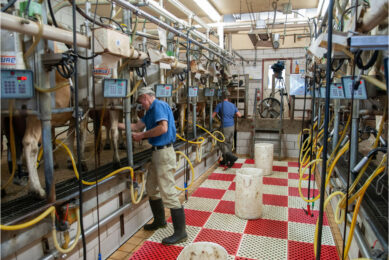German company promotes benefits of cow colostrum

Drinking cow colostrum to improve consumer health is just one of the benefits a company in Germany is using to try and encourage people to use it.
The company called Colostrum BioTec, based in Konigsbrunn, Bavaria, says there are many health benefits associated with drinking bovine colostrum. However, it admits the yellow colour, texture and taste of colostrum does put many people off drinking the liquid.
Colostrum BioTec says recent studies have shown that not only different environmental influences and stress have caused an increase in so-called civilization diseases, but that long-term insufficient nourishment increasingly has such an effect as well.
“Colostrum is a unique dietary supplement, containing nutrients that are no longer present or only present in small quantities in today’s food. Colostrum is the dietary supplement for people of any age, offering suitable ingredients for everyone from young to old. It solves existing deficits, increases strength, and stimulates healing processes,” said the company.
Unfavourable taste
In response to the taste that may put some people off the company is offering capsules for those who prefer that route, as well as 6ml daily liquid shots.
Martin Thiems, Colostrum BioTech distribution manager, said: “The problem with colostrum is that it has a really cheesy, almost whey-like in taste. Therefore we offer the alternatives. Colostrum suitable for human consumption is gathered from cows from conventional and organic animal husbandry. The newborn calves come first; we only get the leftovers. Especially the colostrum milked within the first 24 hours is of high quality.
He added: “We have built up our own supply chain of over 1,400 farmers in Germany, Austria and the Czech Republic. We don’t have any requirements around quantities in our contracts. The farmers can deliver when they can, or they can keep it for their calves.”
Colostrum BioTech is registered as a food business and markets its products as 100% natural alternatives with no sterilisation.
Join 13,000+ subscribers
Subscribe to our newsletter to stay updated about all the need-to-know content in the dairy sector, two times a week.










